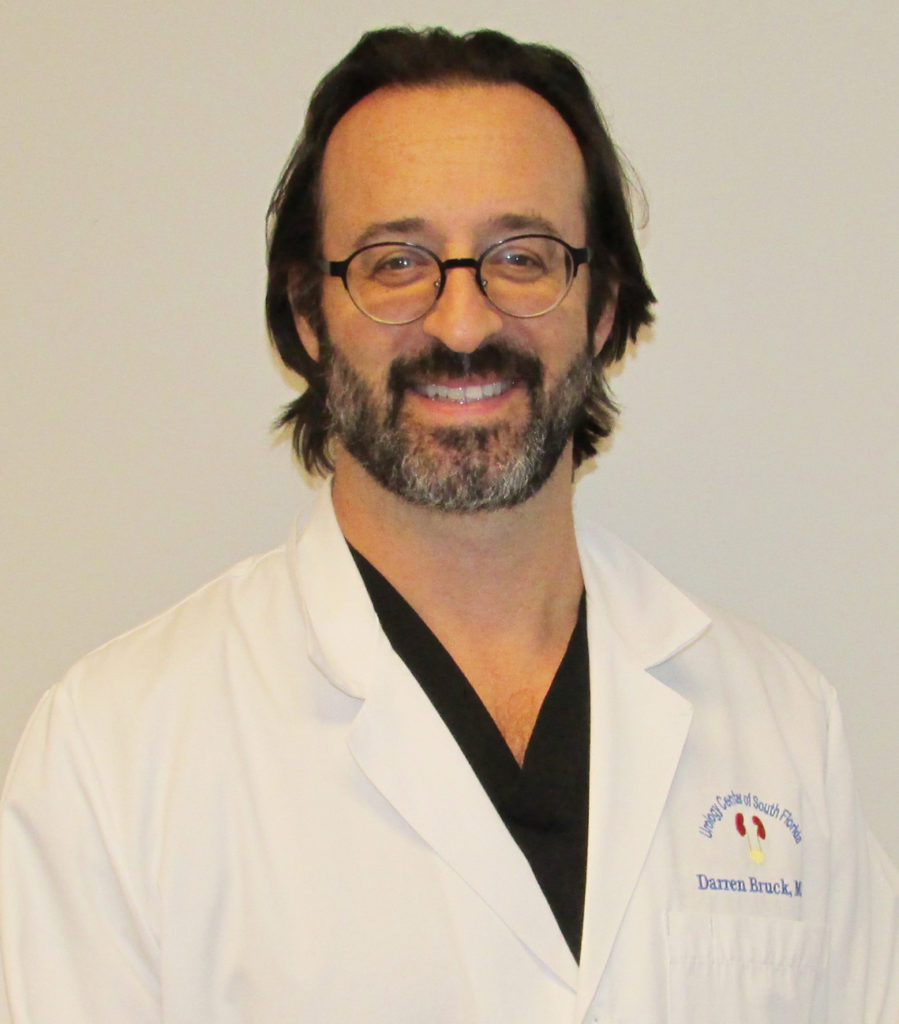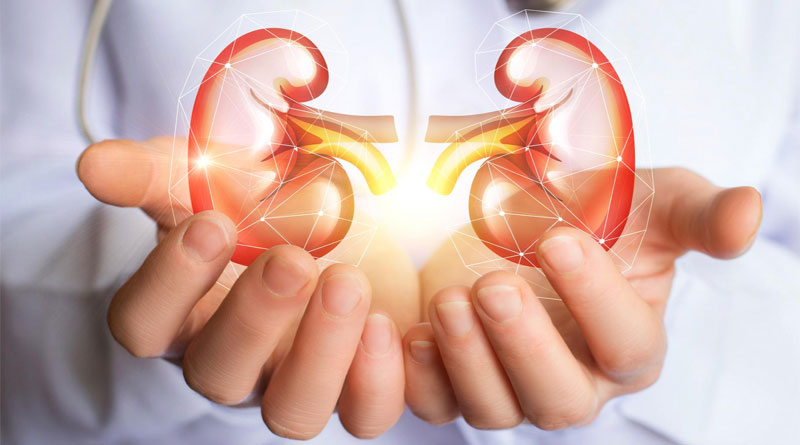More Water, Less Salt Keep Kidneys Healthy.
March is Kidney Health Awareness Month
By: María Alejandra Pulgar
@marialepulgar – NAHJ #37172
March 14 is not only Pi Day but also World Kidney Day; part of a campaign launched in 2006 by the National Kidney Foundation, to raise worldwide awareness on the importance of caring for the kidneys, the amazing organs so fundamental for life that unfortunately people take for granted until they start to fail.
“We are nothing without our kidneys!” says Dr. Darren Bruck, urologist, and pioneer on minimally invasive laparoscopic and robotic urinary tract surgery in Miami.

“Your kidney is the main filtration for your blood. In our blood, we have different levels of salts and minerals and certain toxins. Every time the heart squeezes blood throughout the circulatory system, 25% of that blood goes straight to the kidneys. Your kidneys are constantly filtering this blood through a very intricate system of tubules and a filtration apparatus, where salts and certain toxins get removed and that is where the urine is created” Dr. Bruck explains.
That is the mechanism that keeps the level of minerals in the body right, allowing all other organs in the body to operate properly. “What is really important to know about kidneys, is that they keep the salts in our blood controlled. We are talking about sodium, potassium, chloride, but most importantly potassium” which is important for cardiac and nerve function.
When kidneys fail and potassium gets too high patients can go into cardiac arrest. “The ultimate key function of the kidneys is to maintain good levels of potassium in our blood to keep the heart ticking,” said Dr. Bruck.
The best way to care for the kidneys is a good diet and good hydration and keeping diabetes and hypertension controlled to avoid damaging these vital organs.
Is it possible to live with one kidney?
“For a job as important as filtering your blood and the urine, maybe we needed two for some reason, but we can live with one” explained Dr. Bruck. ”We treat many patients who have kidney tumors with kidney removal surgery. People donate one kidney to a loved one and live the rest of their lives with no problem.”
“The kidney swells a little bit initially while it doubles the load and accommodates, but we surely can live with only one.” When both kidneys fail and stop working, people have to go on dialysis, an artificial kidney, a treatment that every other day filters all the blood in their body.
“There is hemodialysis, people go to a center three times a week to have their blood filtrated by a fistula in their vascular system” explained Dr. Bruck, “or peritoneal dialysis, where there is an access catheter into the abdominal cavity, and a fluid is poured into the abdominal cavity to allow for the transfer of fluids and salts in and out of the body.”
The quality of life is very tough for people who need dialysis. But if they do not have the treatment it is a death sentence, unless they receive a kidney transplant.
According to the American Transplant Foundation, around 115,000 people in the US are on the transplant waiting list, and a name is added every 10 minutes. Unfortunately, an average of 20 people dies every day waiting for a new kidney. It is worth caring for our own kidneys, for our own sake and to help others, if we become voluntary donors.
Nephrologists or Urologists: Which doctor should I see?
Primary care physicians are the first to detect problems in the function of the kidneys and, depending on the issue, direct patients to the right specialist.
“Nephrologists are the medical doctors for the kidneys,” says Dr. Bruck. ”They take care of kidney function issues. They treat patients with dialysis and they adjust medications to make sure the kidneys are getting good blood flow, and are not getting damaged by certain medications. Help patients with their diet, fluid management, and salt management”.
“Urologists, we treat the surgical diseases for the kidneys. Our ultimate goal is to protect kidneys from damage and perform surgery on all urinary tract. We treat kidney stones that can obstruct the kidney and cause damage; we treat cancers, tumors, and other diseases of all organs of the urinary tract.”
Preserving kidney function for a long life
Urologists and nephrologists work together with patients with kidney diseases that also require surgical procedures. Through different blood, urine and imaging tests they determine the condition of the patient and develop a protocol to help them improve and keep their kidney health.
Dr. Bruck recommends people with diabetes or high blood pressure to regularly monitor their kidney function, as both conditions place an additional strain to the kidneys.
He also recommends “Improving circulation, diet, and exercise and avoid dehydration. When we get dehydrated our circulation suffers, our blood volume shrinks and we do not get good perfusion of circulation to the organs. And kidneys need to work harder to concentrate the urine; organs have to work overtime and suffer.”
“Dehydration is an extremely common problem in South Florida. My number one recommendation to patients is drinking more water, more fluids. Keep your organs perfused.” A good rule of thumb is monitoring how clear the urine is. If it is too concentrated, drink more water. And void the bladder frequently to avoid developing an overactive bladder and other related conditions.
“Teaching good eating habits to young kids, avoiding over salting food, avoid dehydration” will help them prevent kidney problems in the future.
“It is easier said than done, but it all goes back to a healthy diet and doing cardiovascular exercise as well, having the blood circulating to the kidneys, getting oxygen to the kidneys to keep them healthy. Diet, fluids and exercise and going for a checkup once a year. Check your blood pressure regularly, a yearly routine exam with the physician and managing stress as well, because stress impacts your blood pressure” concluded Dr. Bruck.

